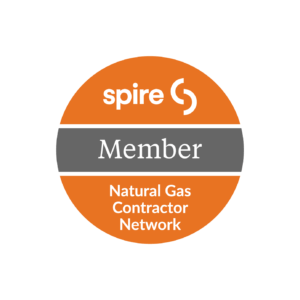As the colder months approach, many homeowners start preparing their heating systems for the upcoming season. One essential question that often arises is: should you clean or replace your air filters before turning on your heating system? The answer is a resounding yes—but whether you should clean or replace the filter depends on several factors.
Why Are Air Filters Important?
Air filters play a crucial role in your HVAC system by trapping dust, dirt, allergens, and other airborne particles. These particles can affect both your indoor air quality and the efficiency of your heating system. Over time, filters become clogged with debris, restricting airflow and forcing your heating system to work harder. This leads to higher energy bills, poor performance, and even potential damage to your system. Clean filters ensure your heating system operates smoothly, providing both comfort and efficiency.
When Should You Clean Your Air Filter?
If you use a reusable air filter, cleaning it regularly is vital for maintaining your system’s performance. A good rule of thumb is to clean your filter every 1 to 3 months, depending on your home environment. If you have pets, live in an area with high levels of dust or pollen, or have a larger household, you may need to clean it more frequently.
To clean a reusable air filter:
1. Turn off your HVAC system.
2. Remove the filter from its slot.
3. Rinse it with lukewarm water to remove dust and dirt.
4. Allow the filter to air dry completely before reinserting it.
It’s important to check the manufacturer’s instructions to ensure you’re cleaning the filter correctly. While cleaning can help extend the life of a reusable filter, even these will need to be replaced over time.
When Should You Replace Your Air Filter?
For disposable air filters, replacement is key to keeping your system in optimal condition. Most HVAC professionals recommend replacing your filter every 1 to 3 months, though this can vary depending on factors like:
• Frequency of system use: If your heating system runs frequently during winter, you may need to replace filters more often.
• Air quality: Homes with poor indoor air quality, heavy allergens, or pollution should have filters changed more frequently.
• Filter type: Higher-efficiency filters that trap smaller particles may get clogged faster than standard filters.
Before turning on your heating system for the first time this season, check the current condition of your air filter. If it appears dirty, gray, or clogged, it’s time to replace it. Running your heating system with a clogged filter not only lowers energy efficiency but can also put unnecessary strain on the system, potentially leading to costly repairs or a reduced lifespan.
What Happens if You Don’t Change or Clean Your Air Filter?
Failing to clean or replace your air filter can have serious consequences:
• Reduced efficiency: A clogged filter forces your heating system to work harder, leading to increased energy usage and higher utility bills.
• Poor air quality: A dirty filter can’t effectively trap dust, allergens, and other pollutants, that can circulate through your home.
• Potential system damage: Over time, restricted airflow can cause the system to overheat or break down, leading to expensive repairs or even a full system replacement.
The Bottom Line
Before switching on your heating system, it’s essential to inspect your air filter and determine whether it needs cleaning or replacement.
Doing so ensures better system efficiency, and improved indoor air quality, and can prevent potential damage to your HVAC system. Taking this small, preventive step will keep your home comfortable and your heating system running smoothly throughout the colder months. Contact No Problem Heating & Cooling today!


